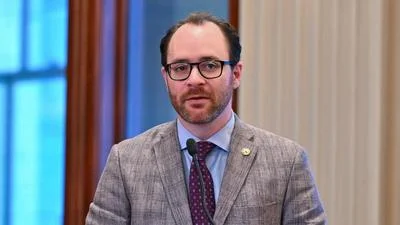Highland Park saw 75 illegal immigrants in two buses dropped off on Dec. 31. | Wikimedia Commons / Teemu08
Highland Park saw 75 illegal immigrants in two buses dropped off on Dec. 31. | Wikimedia Commons / Teemu08
On Dec. 31, Highland Park witnessed the arrival of two buses dropping off illegal immigrants.
The first bus discharged 53 illegal immigrants, while the second disembarked 22 illegal immigrants.
These events were part of a substantial surge in the dropping off of illegal immigrants across the state on Dec. 31.
The 75 dropped off in Lake County were part of a contingent of 780 dropped off in various locations across Illinois, including Dupage County, Elgin and Rockford.
The drop-offs raised concerns and emphasized the ongoing challenges faced by local authorities and communities in managing the logistical and humanitarian aspects associated with the continuous influx of illegal immigrants.
The Dec. 31 influx initiated at 3:45 a.m. in Rockford when a private Boeing 777 carrying approximately 350 illegal immigrants landed at Chicago Rockford International Airport, marking the second instance of Texas sending a private aircraft with undocumented individuals to Illinois.
In response to Chicago's limitations on bus drop-offs for homeless illegal aliens, surrounding communities have enacted their own laws, preventing buses from unloading passengers within their jurisdictions.
Despite these efforts, buses originating in Texas continue to leave passengers in areas up to 50 miles south of Chicago.
Cities such as Rosemont, Cicero, Schaumburg, Elk Grove Village, Matteson, Chicago Ridge, Elburn and South Barrington have already implemented rules restricting or prohibiting bus drop-offs, with additional locales, including Clarendon Hills, Posen, Crystal Lake, Oak Lawn and Broadview, considering similar measures.
Concerns are also rising among counties, with Grundy County erecting signs on interstates advising bus drivers not to attempt stops there.
Grundy County Sheriff Ken Briley attributes the situation to Chicago Mayor Brandon Johnson, emphasizing the growing disconnect between the state's leadership and the desires of its communities regarding immigration policy.
Meanwhile, Chicago's mayor, grappling with the financial burden of supporting welcomed illegal immigrants, plans to redirect $95 million earmarked for COVID-19 response to fund housing for undocumented individuals.





 Alerts Sign-up
Alerts Sign-up